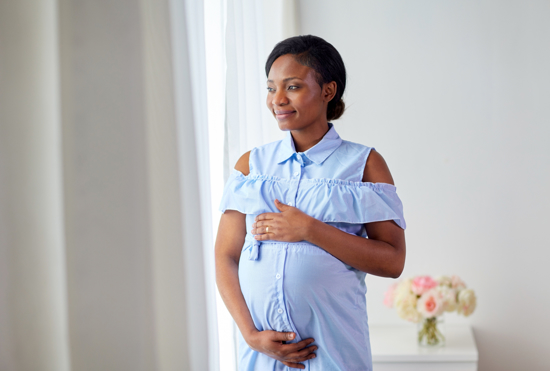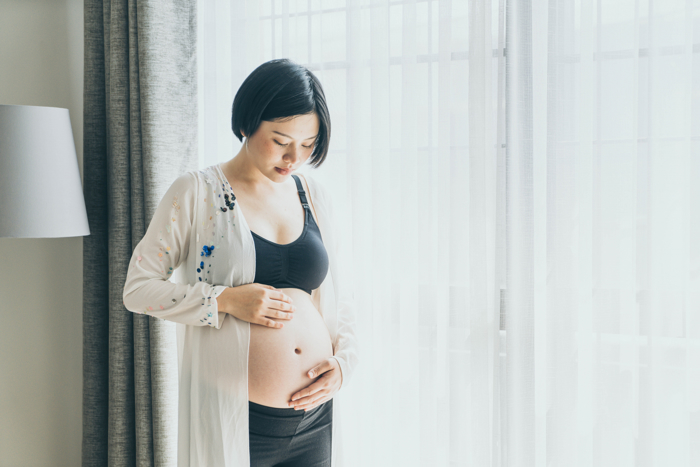What’s happening to the mother?
Weeks 21, 22 and 23
You are now halfway through your pregnancy. You may feel that you are physically and mentally preparing for childbirth and becoming a parent. Many people find that they are focussing more attention on their impending child and less on the outside world.
The ligaments of your pelvis become increasingly elastic. For some women, standing or walking can be painful. Standing up and climbing stairs can also be difficult.
Weeks 24, 25 and 26
You will now be able to feel your baby’s movements on the outside of your abdomen too. You’ll feel kicks daily. The baby’s movements are a sign that it is developing normally and doing well.
Your constantly growing womb may start to squeeze your bladder, nerves, blood vessels and stomach. You may experience more frequent visits to the toilet, cramps in your legs and heartburn, and this can be tiresome.
Dizziness when lying on your back is also common. This happens because your uterus presses on the vein that brings blood back to the heart. Often, all you need to do is turn onto your side.
Your breasts continue to grow.
Development of the fetus
Weeks 21, 22 and 23
A lot happens during this period. The teeth start to form in the gums, the eyelids cover the entire eye and the nails have grown out. The lungs and respiratory tract develop further, getting ready to breathe in air. The pancreas has also begun to produce hormones and insulin.
The baby has spells when it is awake and when it is sleeping. The baby normally weighs around 500 grams at this stage.
Weeks 24, 25 and 26
The fetus’ hearing matures, and it can now hear its mother's heartbeat and breathing. It can also hear voices from the outside. It will weigh between 650 and 900 grams.

Pregnancy weeks 27 and 28
At this stage of pregnancy, it is not uncommon to experience skin changes, such as red dots on the face, upper arms and upper body.
Illustration: Mostphotos
